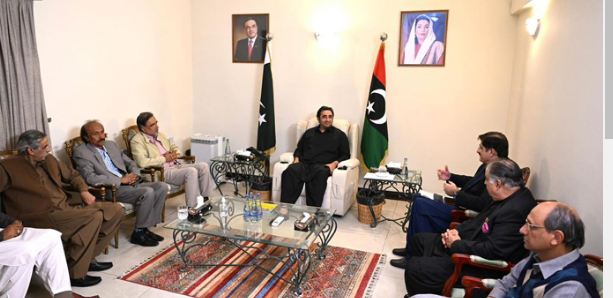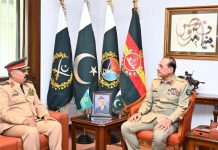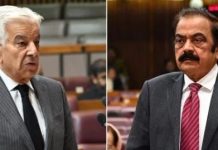The JUI chief’s recent departure from his traditionally pro-Establishment stance is conspicuous, as his anti-Establishment rhetoric floods social media channels. His frustration is palpable, stemming from his party’s inability to secure significant representation at both provincial and federal levels, thereby diminishing his bargaining power
Ansar Mahmood Bhatti
Islamabad: With the PML-N poised to assume government leadership later this week, potentially extending into the following week, anticipation is building for the inclusion of the PPP in the federal cabinet during the second phase. While the PPP leadership has explicitly stated their reluctance to join the cabinet, expressing support for Shehbaz Sharif as the prime ministerial candidate, sources closely connected to this unfolding scenario assert that the PPP may reassess its stance.
Against this backdrop, Shehbaz Sharif is anticipated to commence with a compact cabinet, initially comprising only a dozen or so ministers. Reliable sources affirm that the PPP has already communicated its preferences to Shehbaz Sharif regarding specific ministries. Consequently, there is a likelihood that Shehbaz Sharif will reserve those ministries, accommodating the PPP’s interests.
Apart from PPP, MQM, which will be on board from the outset, is likely to get three key ministries. The party also wants Kamran Tesori to continue as the Sindh governor.
Interestingly, despite fervent efforts, the JUI F, led by Maulana Fazl ur Rehman, finds itself on the outskirts of power corridors. If this trend persists, it would mark an unprecedented occurrence in recent political history, with JUI F not securing a role in any government. Nevertheless, Maulana Fazl ur Rehman remains undeterred, actively seeking to assert his political significance by orchestrating protests.
Strategically, he has identified Sindh as the battleground, a region where he believes Asif Ali Zardari holds the key to realizing his ambitions. By selecting Sindh as his arena, Maulana aims to exert pressure on the PPP, with the hope of securing a share, even if modest, in the Baluchistan cabinet. His underlying strategy is to leverage a strong showing in Sindh as a bargaining chip, potentially leading to concessions not only at the provincial level but also at the federal level. The Maulana’s persistence and strategic maneuvering indicate a determined pursuit of political relevance.
The JUI chief’s recent departure from his traditionally pro-Establishment stance is conspicuous, as his anti-Establishment rhetoric floods social media channels. This shift is particularly noteworthy given the Maulana’s historical alignment with the Establishment. His frustration is palpable, stemming from his party’s inability to secure significant representation at both provincial and federal levels, thereby diminishing his bargaining power. In assigning blame for his political setbacks, he squarely points the finger at the Establishment.

















